Petrol driver shortage: Visa scheme planned to ease problems
- Published
- comments
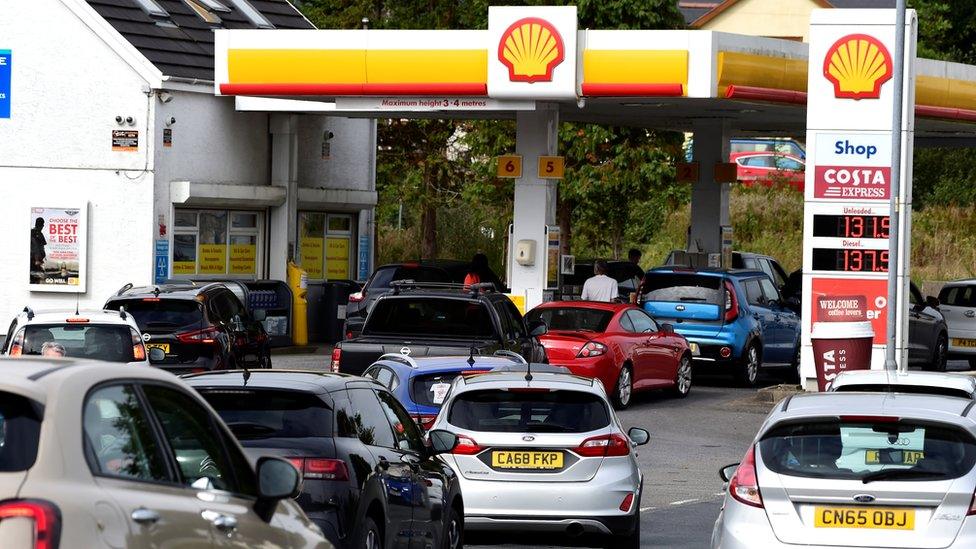
Drivers have queued at some petrol stations, despite reassurances over supplies
Ministers are working on plans for a temporary visa scheme to make it easier for foreign lorry drivers to come to the UK.
Final details of exactly how the initiative will work are expected to be announced this weekend.
Any changes to immigration rules will be temporary, with a cap on the number of workers allowed to enter the UK.
The shortage of hauliers threatens more disruption to deliveries of petrol, food and other goods.
It is estimated that the UK is short of about 100,000 HGV drivers - with existing shortages made worse by the pandemic and Brexit.
BP and Esso have shut a number of petrol stations due to a lack of tanker drivers, while EG Group has said it will introduce a limit of £30 per customer on all grades of fuel.
The company, which operates 400 filling stations in the UK, said the move was due to the "current unprecedented customer demand for fuel and associated supply challenges".
All of EG Group's UK sites remain open and operational to serve customers.
HGV drivers and emergency services will be excluded from the £30 limit due to "their vital role at this time", according to the firm.
"This is a company decision to ensure all our customers have a fair chance to refuel and to enable our sites to carry on running smoothly," a spokesperson from the firm said.
"We kindly ask everyone visiting our sites to treat our colleagues, supply chain partners and customers with respect during these very challenging times."
A Downing Street spokesperson said: "We have ample fuel stocks in this country and the public should be reassured there are no shortages.
"But like countries around the world we are suffering from a temporary Covid-related shortage of drivers needed to move supplies around the country."
The spokesperson explained that ministers are looking at temporary measures to "avoid any immediate problems", but added that any measures introduced will be "very strictly time limited".
"We are moving to a high-wage, high-skilled economy and businesses will need to adapt with more investment in recruitment and training to provide long-term resilience," the spokesperson added.
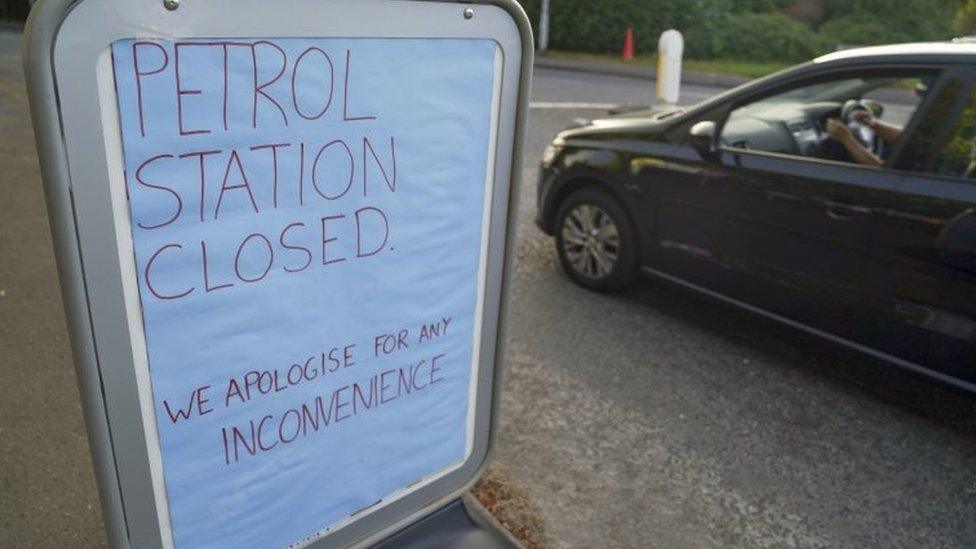
A sign outside a Tesco petrol station in Bracknell, Berkshire, on Friday
The European Road Haulers Association said temporary visas would be a "good idea" but are "only part of the solution".
The association said it is still easier to drive within the EU than driving between the EU and the UK, meaning that staying within the EU may still be more appealing for drivers.
Despite reassurances, large queues formed at many petrol stations on Friday. On social media, people reported queues lasting for up to 30 minutes, while there were also reports of drivers filling jerry cans.
Are there problems at the forecourt you use? Send your pictures to yourpics@bbc.co.uk, external or upload your pictures/video here
The AA said that most of the UK's forecourts were working as they should.
"There is no shortage of fuel and thousands of forecourts are operating normally with just a few suffering temporary supply chain problems," said AA president Edmund King. "Fridays and the weekend always tend to be busier on forecourts."
Mr King said drivers should not fill up outside their normal routines, because even if the occasional petrol station was temporarily closed, others just down the road would be open. "This was a manageable problem," said.
There are about 8,380 petrol stations in the UK, according to the Petrol Retailers Association. Of these, about 1% are believed to be closed at the moment.
It is understood that about 50 to 100 BP forecourts are affected by shortages, while Esso said "a small number" of its Tesco Alliance retail sites had been hit.
Allan Davison, managing director of Hoyer Petrolog UK - one of the country's leading fuel logistics companies and BP's transport contractor - told the BBC that European drivers should be offered temporary visas to help ease the situation.
"If this was a permanent request, I would understand the political and practical challenges with that, but it's not. It's a temporary request," he said.

'We are not an attractive industry for the younger generation'
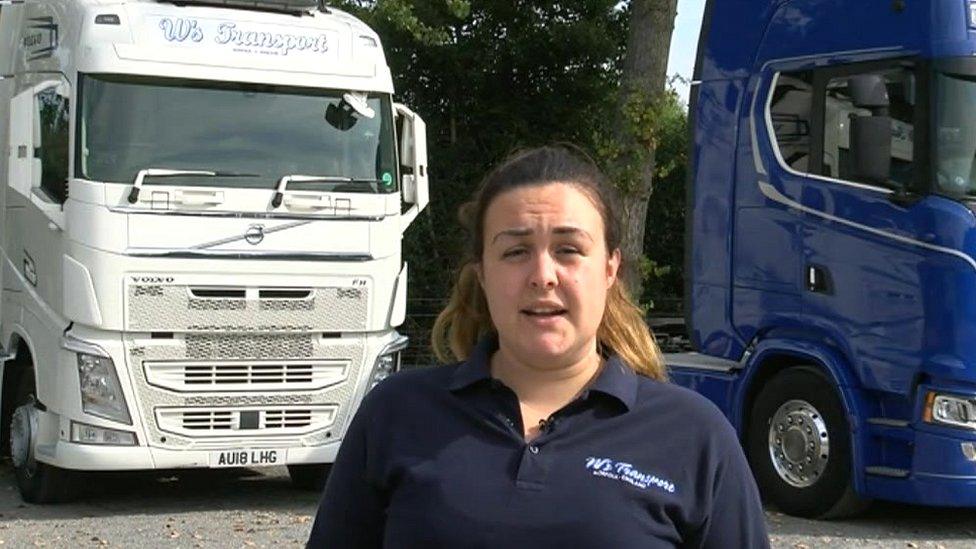
Helena Wright is part of family firm W's Transport, based in north Norfolk
Helena Wright, transport manager for Norfolk-based firm W's Transport, told the BBC her company had sold two lorries after advertising for HGV drivers and not getting a single applicant.
"Normally we would have people on record to call who had left their details," she said. "This is the first time for our firm that that's happened, but it's a problem that has been a long time coming.
"I've got a lot of drivers that are over the age of 50, 55 and looking to retire and we are not attractive as an industry for the younger generation."
She said younger people were not prepared to spend four to five nights a week away from home and were not ready to put up with "inhumane" conditions.

RAC fuel spokesman Simon Williams said: "The supply issues affecting a small number of petrol forecourts shouldn't impact the prices drivers pay to fill up.
"But unfortunately the price of oil, which has the biggest influence on what drivers pay at the pumps, is continuing to rise at the moment. This may lead to fuel prices going up in the coming days"
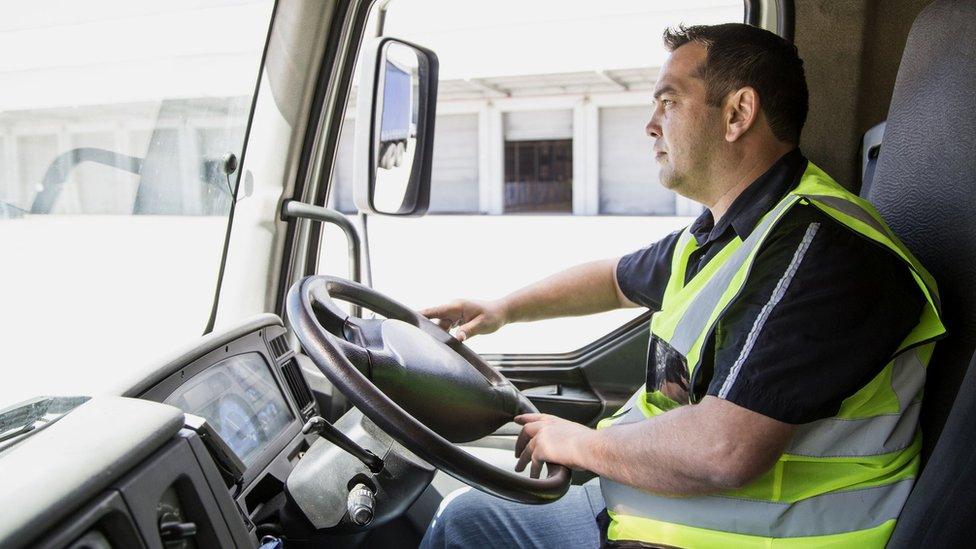
Supermarket Iceland - which is about 100 drivers short - joined Morrisons and Ocado in calling for the government to add HGV drivers to the list of shortage occupations, external.
That would allow foreign workers to apply for skilled worker visas to fill the current gaps.
"I think the solution - even if it's temporary - is very, very simple," said Iceland managing director Richard Walker. "Let's get HGV drivers on to the skilled worker list."
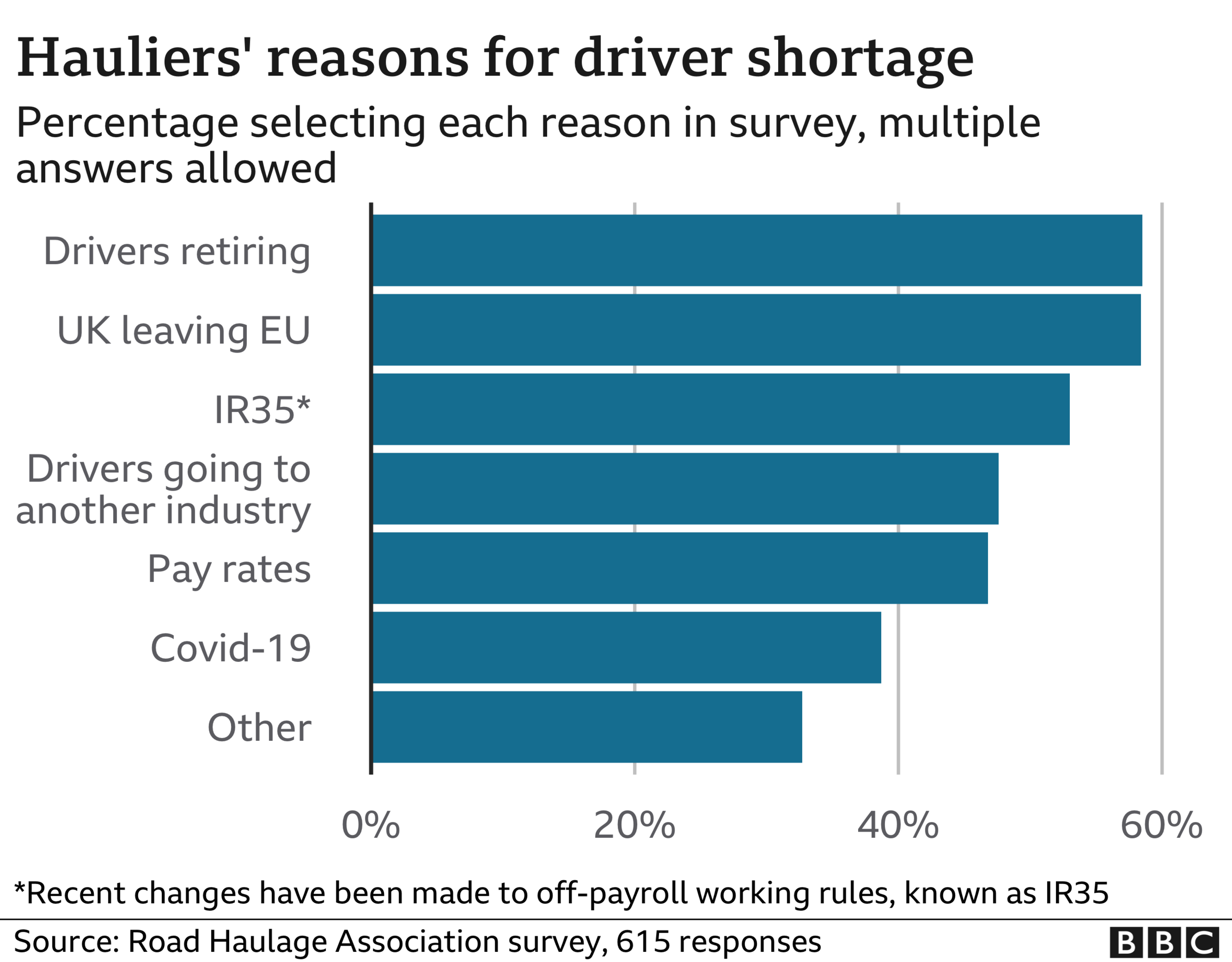
The UK's Road Haulage Association (RHA) said that on top of a historic shortage of drivers, the industry had lost 20,000 European drivers because of Brexit, while the pandemic had forced 40,000 driver training tests to be cancelled.
In a recent RHA survey, external of 616 hauliers, retiring colleagues and Brexit topped the list of reasons behind the driver shortages.
Respondents also cited tax changes to rules known as IR35, which have made it more expensive for hauliers from elsewhere in Europe to work or be employed in the UK.

WHAT WE LEARNED FROM THE OFFICE: Secrets, facts and behind-the-scenes gossip about the beloved British comedy
WHAT TO TAKE TO UNI: The must-haves and easily forgotten essentials for starting university

- Published23 September 2021
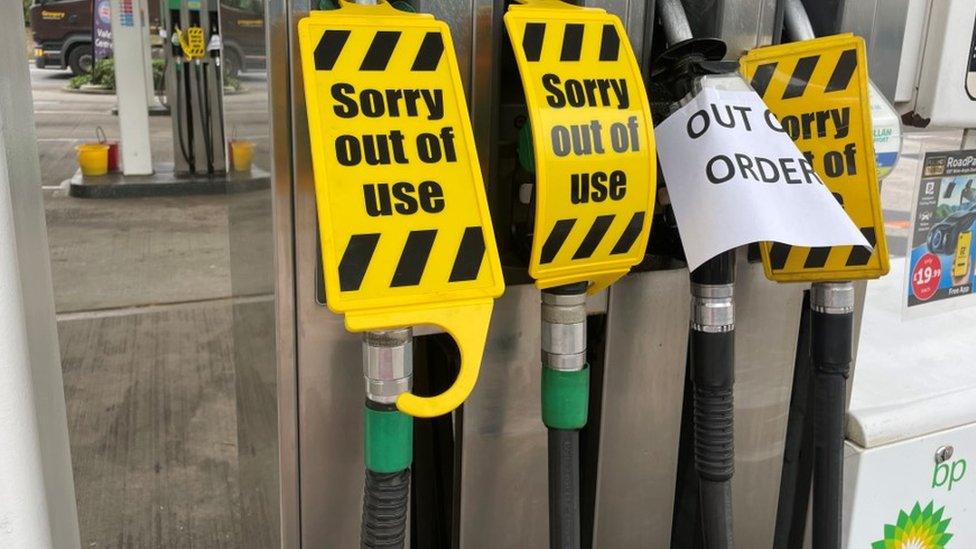
- Published15 October 2021
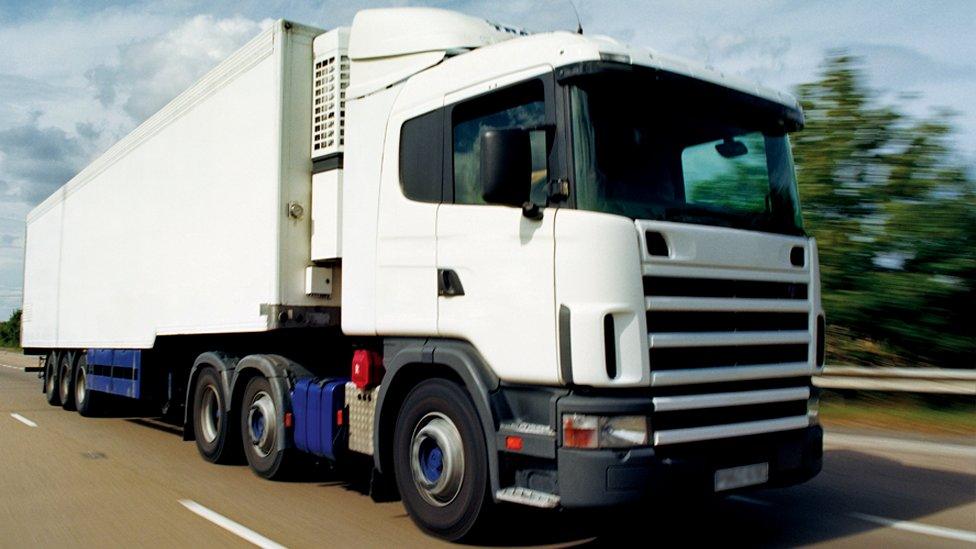
- Published24 August 2021
